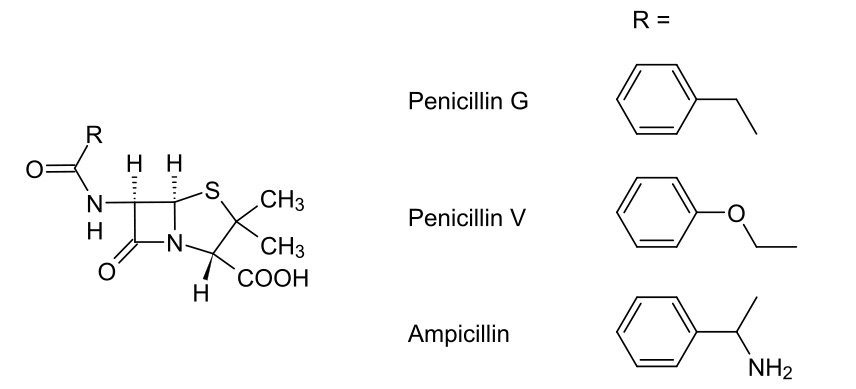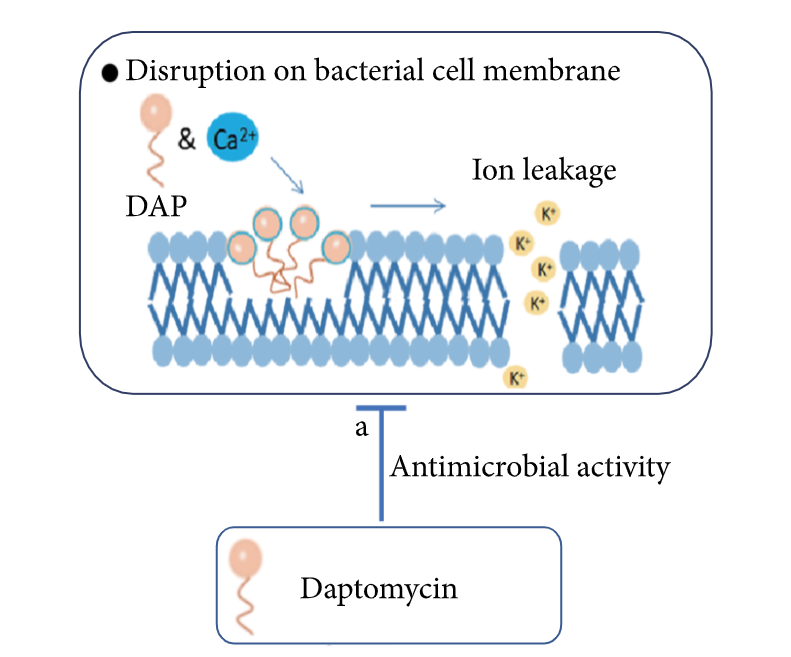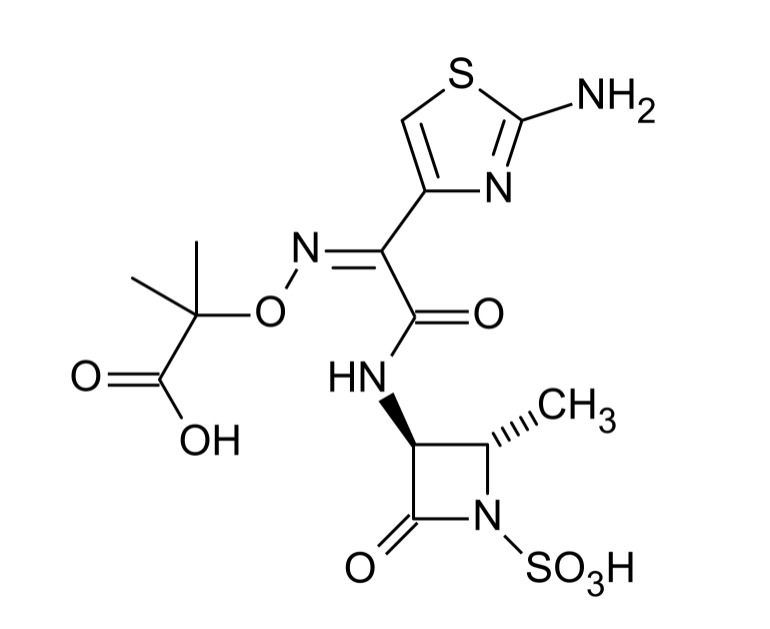Playlist
Show Playlist
Hide Playlist
Monobactams, Cyclic Lipopeptide and Polypeptide – Cell Wall Synthesis Inhibitors (Antibiotics)
-
Slides Antimicrobial Pharmacology Monobactams Cyclic Lipopeptide Polypeptide.pdf.pdf
-
Download Lecture Overview
00:01 Cell wall synthesis inhibitors also include a broad spectrum of other agents, one of them are the monobactams. 00:08 Now monobactams include drugs like aztreonam. 00:11 Aztreonam has some adverse effect associated with it including GI upset and vertigo and headache, but the reason why we really like this particular agent is that it doesn't have any cross allergy with penicillins so when you have a patient come in who would really benefit from a penicillin but is allergic to penicillins we can use aztreonam. 00:33 The next category are cyclic lipopeptides. 00:36 Lipopeptides are very, very, complicated structures you can see here how complicated it really is. 00:42 Daptomycin is the prototypical agent in this drug class. 00:46 It is what we define as a cyclic lipopeptide. 00:50 It is for the treatment often used in VRE which is vancomycin resistant enterococci and VRSA which is vancomycin resistance staph aureus. 01:00 We sometimes have to monitor a person's creatine kinase after we administer this agent because it can be very myopathic. 01:08 So remember, on your exam, daptomycin is myopathic. 01:13 You have to watch that very closely on your exams. 01:16 I wanna give another drug that is myopathic and that is the statins. 01:20 So cholesterol treating agents like Crestor or resuvastatin are myopathic as well. 01:28 When you have a multiple choice question you will sometimes be given daptomycin and statin together and you have to pick out which of the agents are myopathic so just a little off the cuff help on your exams that are coming up. 01:44 Daptomycin have some GI offense as well so you can get GI upset a lot of upset stomach. 01:50 People will get vertigo and headache from this particular agent. 01:54 Again, the nice things about these miscellaneous agents is that there isn't a cross reactivity in terms of patients who are penicillin allergic. 02:02 Daptomycin is kind of a fun agent to see how it works. 02:06 Daptomycin is this complex molecule with the stringy end that inserts into the cell wall. 02:13 Now it's complicated and it's huge as that molecule is it's not done because now it'll bind to a whole bunch of other daptomycin molecules and it will form something called oligomers or oligomerization. 02:25 Oligomers are when you have one drug binding to itself multiple times to form a complex. 02:31 This complex becomes a channel in the wall of the bacteria. 02:36 What happens with this channel is it get ion efflux. 02:40 That ion efflux causes a depolarization of the membrane. 02:45 Why do you care if the membrane is depolarized? Because if a bacterial membrane is depolarized, DNA and RNA synthesis cannot start or cannot proceed and that means that protein synthesis also can't proceed which means that the cell stops producing those proteins that are necessary for life the cell stops, the bacteria stops. 03:11 Let's move on to a different class called the cyclic polypeptides. 03:15 Cyclic polypeptides are also very complicated. 03:19 They are locally effective and they are often are limited to topical use. 03:23 Topical doesn't just mean the skin because in this particular case we'll use this agent in sore throats. 03:29 We'll often will spray at the back of the throat if a person has an infection in the back of the throat only and it'll act locally to affect exchange. 03:38 Now, people like me love these kinds of drug not because they are particularly useful in the clinic but because they are so complicated and they are fun to look at. 03:47 Now this drug will inhibit protein biosynthesis of gram-positive organisms. 03:51 If you think about that, that's mostly the upper respiratory track, isn't it? They are also and this is important, completely ineffective against gram negative organisms so if you suspect a patient having a gram negative organism as a cause of the infection, don't use this particular agent.
About the Lecture
The lecture Monobactams, Cyclic Lipopeptide and Polypeptide – Cell Wall Synthesis Inhibitors (Antibiotics) by Pravin Shukle, MD is from the course Antimicrobial Pharmacology. It contains the following chapters:
- Aztreonam
- Daptomycin
- Tyrothricin
Included Quiz Questions
What must be monitored when administering daptomycin?
- Creatine kinase (CK)
- Creatinine and BUN
- White blood cell count
- Iron studies
- Transaminases
Customer reviews
5,0 of 5 stars
| 5 Stars |
|
1 |
| 4 Stars |
|
0 |
| 3 Stars |
|
0 |
| 2 Stars |
|
0 |
| 1 Star |
|
0 |
Dear Pravin Shukle, Thank you and thanks to Lecturio. I am writting from Turkey. Accorrding to the sistem here after 6years of medical school training we take an exam(TUS) in order to be able to continue specialization in diferent branch of medicine. Most of the questions in that exam were about points you emphasized on your lecture.






